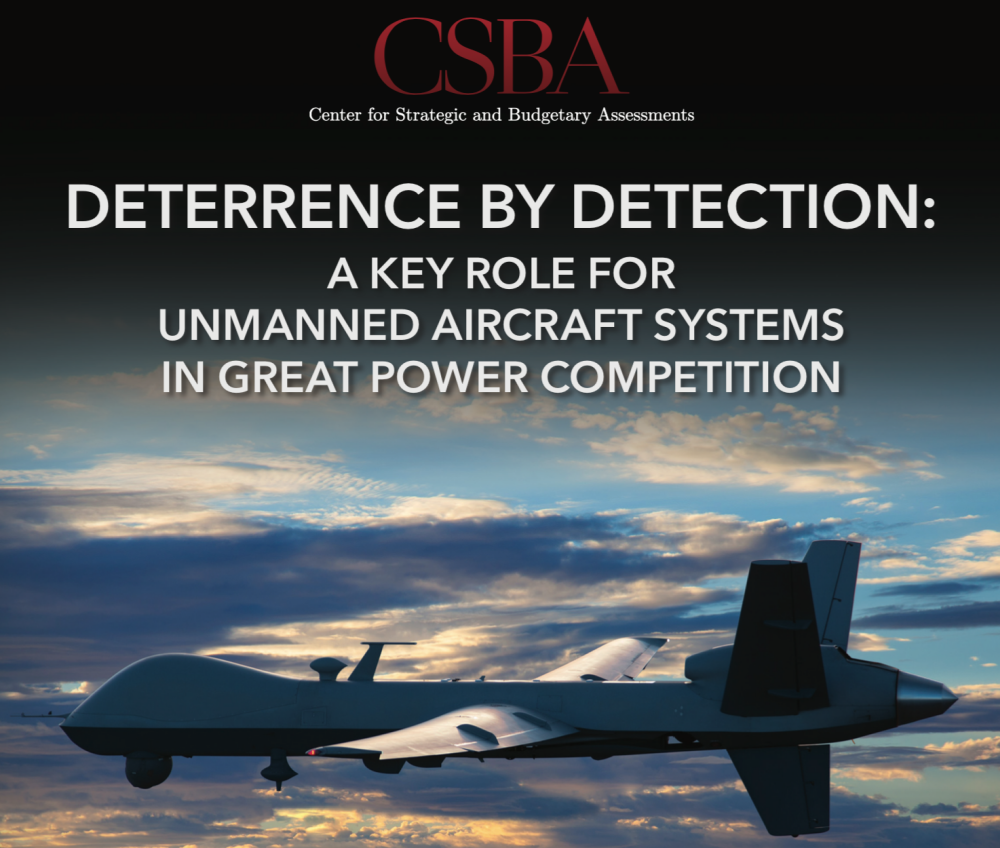According to a new study by Washington’s Center for Strategic and Budgetary Assessments (CSBA), the fleet of high-flying, long-endurance unmanned aircraft operated by the United States and its allies could be a vital hedge against efforts by Russia and China to expand their borders and influence.
In CSBA’s latest study, Deterrence by Detection: A Key Role for Unmanned Systems in Great Power Competition, CSBA President and CEO Dr. Thomas G. Mahnken, Research Fellow Travis Sharp, and Senior Analyst Grace Kim propose a new operational concept to deter Chinese and Russian aggression, one that uses a network of existing non-stealthy long-endurance unmanned aircraft systems (UAS) to maintain real-time, persistent situational awareness in key geographic areas in the Western Pacific and Eastern Europe.
The authors argue that real-time situational awareness is critical to countering the twin challenges of sub-conventional gray zone aggression and a conventional fait accompli gambit promptly and effectively.
In an era of renewed great power competition, one of the most significant challenges the United States and its allies face is the need to deny China or Russia the ability to launch opportunistic acts of aggression against an ally or partner in the Western Pacific or Eastern Europe.
There is increasing concern among defense policymakers in the United States and its allies and partners that China and Russia are developing the ability to launch aggression rapidly against states on their periphery under the cover of increasingly capable reconnaissance-strike networks.
With limited warning, Beijing or Moscow could exploit their time-distance advantage to seize allied territory before the United States and its allies could respond, thereby creating a fait accompli that would be difficult to reverse after the fact.
The full 56-page study can be read here or downloaded here.
Source: Press Release

